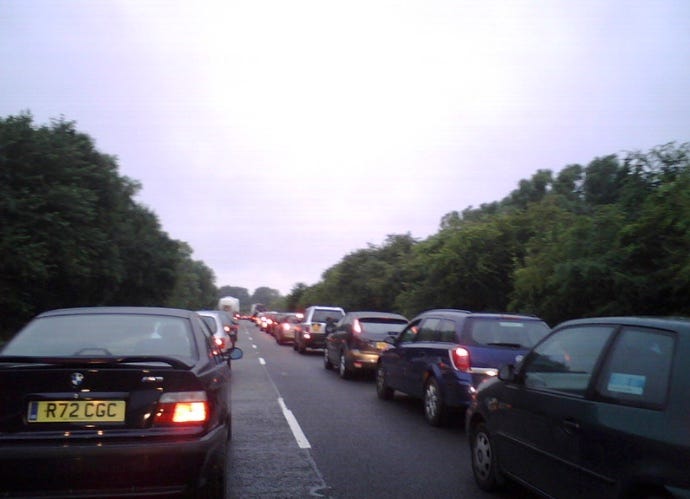'City of dreaming spires' dreams up a new EV perk
As Oxford introduces congestion pricing, it'll be free for electric cars.
(A native of England, Matthew Diebel is a veteran journalist who has worked at NBC News, Time, USA Today and News Corp., among other organizations. Having spent his childhood next to one of the world's fastest bodies of water, he is particularly interested in tidal energy.)
By now, you’ve no doubt heard of congestion pricing, where drivers are charged fees for venturing into city centers. They’re already in place in London, Singapore, Stockholm, Milan and other places, and have not only led to less-crowded streets but also have helped reduce pollution and accidents (as well as bolster the cities’ coffers). Next up using the high-tech tracking technology: The lower half of New York City’s Manhattan, which, after a Covid-caused delay, is expected to be introduced in 2023.
Now, from an ancient and revered city, comes a new wrinkle on the trend. The U.K.’s spire-filled Oxford, home to the oldest university in the English-speaking world and some of Britain’s most beautiful architecture, is to launch a zero-emissions zone (ZEZ) where only all-electric vehicles will travel free. Drivers of non-fully electric vehicles — including hybrids cars — using city center roads will be charged a daily fee of between £2 ($2.69) and £10 ($13.45) under the new rules, reports Cities Today, with license plate recognition cameras used to enforce the program. (London is at present free for EVs, but is due to start charging in 2025.)
At present, the system is in a pilot stage, with paid entry in place between 7 a.m. and 7 p.m. on selected streets. It’s expected to launch fully in 2023 for the entire city center.
“The city council has chosen to set the toughest air quality standards of any local authority in the country,” said Tom Hayes, the body’s deputy leader and cabinet member for green transport and zero carbon. “That’s how you meet the climate crisis and clean our dirty air and deliver social justice at the same time.”
And, if Oxford’s example spreads, impel more people to buy EVs.

